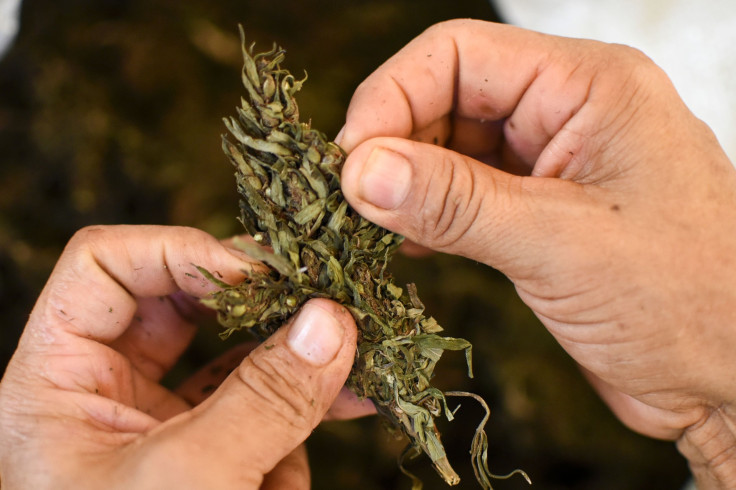Marijuana Legalization 2016: Medical Pot Research To Expand Under New DEA Policy

The Obama administration and the DEA will announce a new policy on marijuana Thursday that will be a mixed back for advocates of reduced restrictions and legalization of the drug.
The U.S. government is set to announce that it will allow significantly more research into marijuana, upping the number of research universities in the country that are authorized to study the drug. However, that announcement is coupled with the news that the DEA will not remove marijuana's classification as a Schedule 1 drug, a distinction legalization advocates have been eager to see changed.
The University of Mississippi has enjoyed years as the only academic institution with the ok from the government to study the effect of marijuana. That will change under the new policy. It is not yet clear how many or which new institutions will join the club, but reports say the DEA is not putting a cap on the number of universities that can apply for approval.
"It will create a supply of research-grade marijuana that is diverse, but more importantly, it will be competitive and you will have growers motivated to meet the demand of researchers," said John Hudak, a senior fellow at the Brookings Institution, told The New York Times.
While the expanded research is a win for cannabis advocates and will bring about new data about the to-this-point ambiguous medical benefits of the drug, advocates were in equal parts spurned by the decision not to declassify marijuana as a Schedule 1 drug. The Schedule 1 designation keeps marijuana illegal under federal law and classifies the drug as dangerous and highly addictive with no medical use, putting it legally in the same category as other indisputably dangerous narcotics like cocaine and heroin. The classification affects the criminal penalties associated with being caught for possession.
"[The] DEA's decision flies in the face of objective science and overwhelming public opinion. The reality is that half of U.S. states have already passed effective laws allowing patients legal access to medical cannabis, and it is changing lives," read a statement from the National Cannabis Industry Association. "Continuing marijuana prohibition forces critically ill people to suffer needlessly, leaves life-changing treatments undeveloped, and keeps patients and providers in limbo between state and federal laws. We appreciate the positive step - however small - of opening up a few additional avenues for medical marijuana research. But patients deserve more, and Congress should help them by removing marijuana from the Controlled Substance Act, allowing state programs and medical research to move forward without interference."
To date, 25 so states have approved the medical use of marijuana for a growing list of conditions, including Parkinson’s, Crohn’s disease, Tourette’s syndrome, Alzheimer’s, lupus and rheumatoid arthritis. Four states, Alaska, Colorado, Oregon and Washington, have taken things a step further by legalizing recreational use of the drug. The Justice Department, under President Obama, has not interfered with implementation of legalization in those states, despite marijuana's Schedule 1 distinction. Recreational marijuana will be on the ballot in five states this November on Election Day, including California. Thee more states will vote on legalizing marijuana for medical purposes.
Thursday's policy announcement comes in the wake of some cultural news regarding marijuana. In anticipation of the DEA's policy changes, the hashtag #IfItWasntForWeed began trending on Twitter Wednesday with users listing how the drug has benefited their lives (and making a fair amount of "stoner" jokes). Then there was Malia Obama, the daughter of President Obama, who was spotted appearing to smoke a marijuana joint while attending the Lollapalooza music festival in Chicago over the weekend. The sighting sparked debate on social media, with some admonishing her conduct and others rushing to her defense — President Obama himself has admitted to smoking marijuana when he was young and has stated recently that he believes it to be no more dangerous than alcohol.
What was Malia Obama smoking at Lollapalooza?
— Complex (@Complex) August 10, 2016
🤔 🤔 🤔 https://t.co/3h4RbehV1k pic.twitter.com/M7hKuJkvBJ
© Copyright IBTimes 2024. All rights reserved.






















